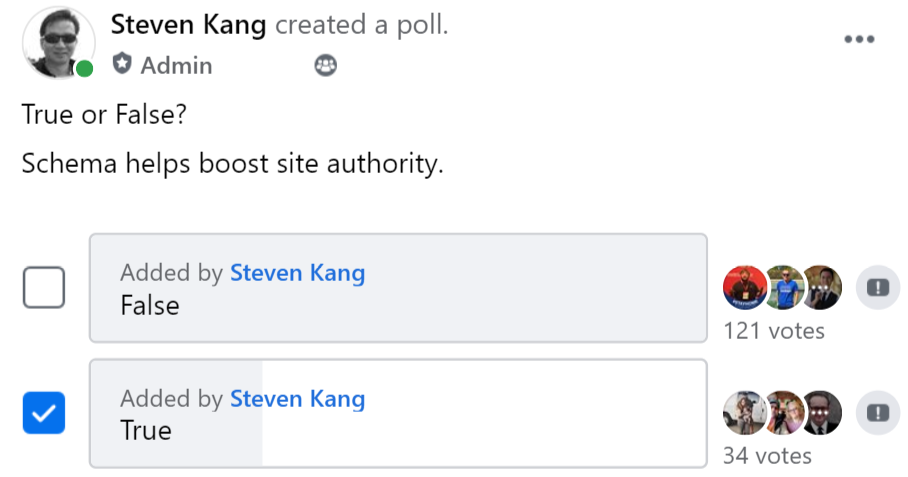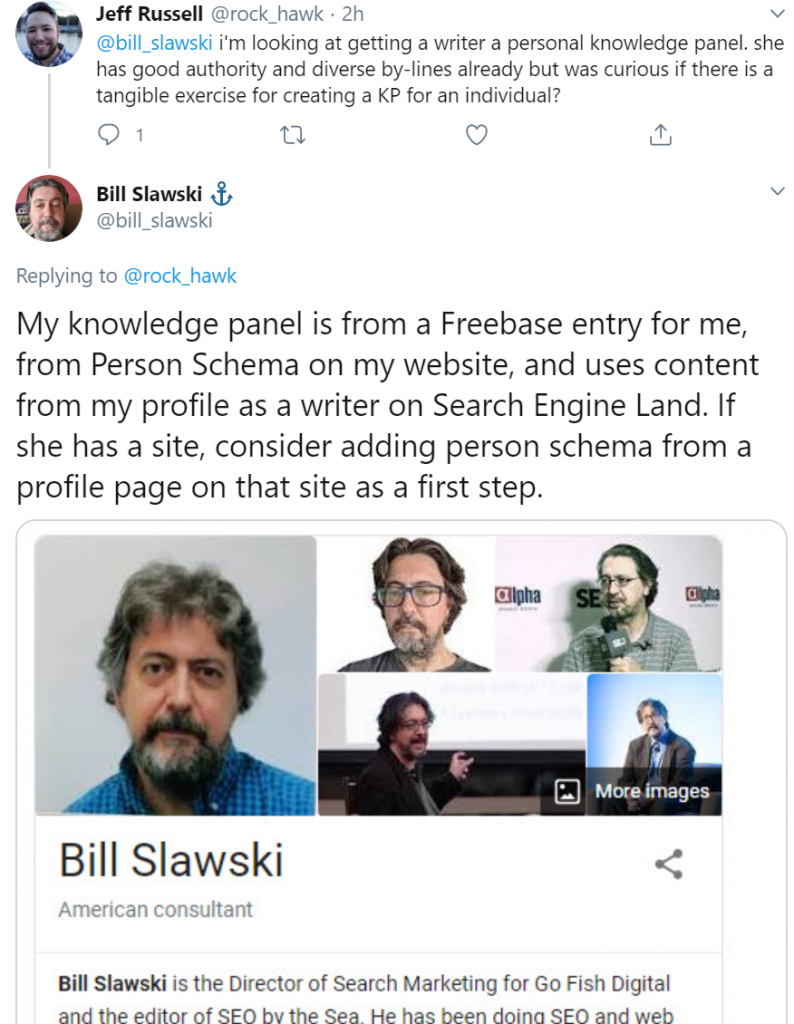The other day, Steven Kang dropped a poll asking if Schema helps boost authority. It was a landslide with the majority voting No, which kind of surprised me.

I think the results should be flipped, where the majority should be voting Yes.
So, I thought it prudent to drop some Schema knowledge since it seems many don’t understand its significance.
Schema allows us to spoon-feed Google information it wouldn’t normally be able to decipher contextually.
One of the most helpful things you can do is set up connections between entities. If a local business, organization, or author is mentioned online, you can point to these URLs inside your schema to make the connections less ambiguous.
Think of each connection you make with Schema like a thread. The more threads or connections you make, the stronger the “web” will be.
Making these distinct connections plays an important role, particularly if the connection is “muddy” or difficult for a search engine to pick up on organically.
Once you look at Schema deeper, it’s going to become immediately apparent the sorts of properties you can match up that will lend legitimacy, and tangentially, authority.
Sameas is used commonly to create connections to an entity’s social profiles, Wikipedia page, etc. But we can do a lot of other things, too.
20+ Useful Schema Properties to Consider
For example, look up these properties and what they do for a brand or organization: duns, award, legalname, memberof, naics, even simple things like address and phone number help.
The authoritative benefit of Schema becomes even more true for your content production as a Person.
Here’s some helpful properties to look up when you’re looking to build out authoritativeness for a Person: alumniof, author, memberof, contactpoint, hasoccupation, owns, worksfor, worklocation
Doing a lot of local? We can think beyond the NAP and actually get a lot more granular.
Look at openinghours, pricerange, paymentaccepted, hasmap, longitude/latitude, and areaserved makes for an interesting property for service area businesses.
Schema Use Case: Yelp
Yelp is a despicable ranking behemoth that is using Schema really well.
Their dynamic Schema feeds off of their reviews and listings, a sight to behold once you look behind the curtain.
Schema Use Case: Authors
You can also find plenty of good uses with SEO authors like Bill Slawski.

